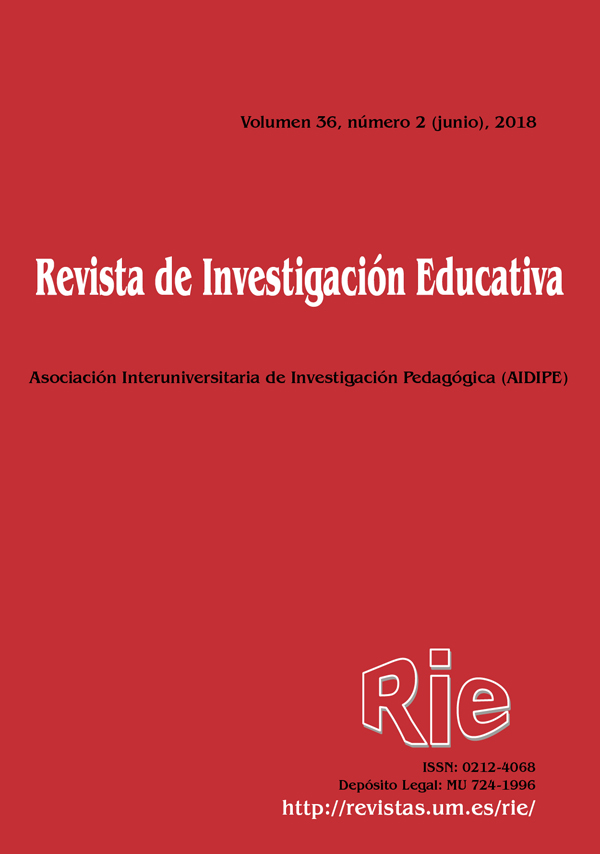Attitude towards e-learning in university students
Abstract
Education institutions are facing an era of constant innovation. Various tools, teachinglearning methodologies, and virtual systems offer students the opportunity to achieve their educational goals, to optimize their professional development and to gain access to a quality education. To take into account the attitude of students towards online education is one of the most important factors to design, develop and implement initiatives enabling students to make use of this educational offer and get the most benefit. This article exposes the results of the research that aims to identify the attitudinal factors that influence the online learning of university students. The methodology in this study is quantitative, non-experimental descriptive ex-post facto. An online questionnaire was completed by 47 students aiming towards a certification, technical, master’s degree and a graduate degree in online education of the Galileo University of Guatemala. The results indicated that the students with prior experience in technology and online learning which receive instruction from skilled tutors in a system easy to use and have the adequate technological and pedagogical support feel less stress about online learning and have a positive attitude towards it.Downloads
-
Abstract17225
-
PDF (Español (España))15035
References
Ajzen, I. (1991). The theory of planned behavior. Organizational behavior and human decision processes, 50(2), 179-211. https://cas.hse.ru/data/816/479/1225/Oct%2019%20Cited%20%231%20Manage%20THE%20THEORY%20OF%20PLANNED%20BEHAVIOR.pdf
Alabdullaziz, F., Muhammad, M., Alyahya, S., & Gall, J. (s.f.). Instructors´ and learners’ attitude toward e-learning within a college education. Department of Educational Technology. University of Northern Colorado. http://files.eric.ed.gov/fulltext/ED528860.pdf
Bertea, P. (2009). Measuring student´s attitudes towards e-learning. A case study. Con- ferencie Proceedings of E-learning and Software in Education, (1), 417-424. https://www.ceeol.com/content-files/document-37597.pdf
Casal, J., & Mateu, E. (2003). Tipos de muestreo. Rev. Epidem. Med. Prev, 1, 3-7. http://www.mat.uson.mx/~ftapia/Lecturas%20Adicionales%20(Cómo%20diseñar%20una%20encuesta)/TiposMuestreo1.pdf
Centeno, G., & Cubo, S. (2013). Evaluación de la competencia digital y las actitudes hacia las TIC del alumnado universitario. Revista de Investigación Educativa, 31(2), 517-536. http://dx.doi.org/10.6018/rie.31.2.169271
Elejabarrieta, F., & Iñiguez, L. (2000). Construcción de escalas de actitud tipo Thurstone y Likert. Revista Electrónica La Sociología en sus Escenarios. http://aprendeenlinea.udea.edu.co/revistas/index.php/ceo/article/view/6564
Hernández, R., Fernández, C., & Baptista, M. (2014). Metodología de la Investigación. https://trabajosocialudocpno.files.wordpress.com/2017/07/metodologc3a3c2ada_de_la_investigacic3a3c2b3n_-sampieri-_6ta_edicion1.pdf
Lee, L., & Li, L. (2016). Computer literacy and online learning attitude toward GSOE students in distance education programs. Higher Education Studies, 6(3), 147-156. http://www.ccsenet.org/journal/index.php/hes/article/viewFile/61435/33419
Mehra, V., & Omidian, F. (2012). Development an instrument to measure university students ´attitude towards e-learning. Turkish Online Journal of Distance Education, 13(1), 34-51. https://files.eric.ed.gov/fulltext/EJ976928.pdf
Morales, M. (2012). E-learning en Guatemala, perspectivas y oportunidades para instituciones educativas. El Observatorio de la Formación en Red. Boletín SCOPEO, (59). http://scopeo.usal.es/enfoque-bol-59-e-learning-en-guatemala-perspectivas-y-oportunidades-para-instituciones-educativas/
Mothibi, G. (2015). A meta-analysis of the relationship between e-learning and student´s academic achievement in higher education. Journal of Education and Practice, 6(9), 6-9. http://files.eric.ed.gov/fulltext/EJ1082408.pdf
Orantes, S. (2011). Viabilidad del “Modelo de Aceptación de la Tecnología” en las empresas mexicanas. Una aproximación a las actitudes y percepciones de los usuarios de las tecnologías de la información. Revista.unam.mx, 12(1). http://www.revista.unam.mx/vol.12/num1/art08/index.html
Organista, J., & Backhoff, E. (2002). Opinión de estudiantes sobre el uso de apoyos didácticos en línea en un curso universitario. Revista Electrónica de Investigación Educativa, 4(1). https://redie.uabc.mx/redie/article/view/52/95
Organización de las Naciones Unidas para la Educación, la Ciencia y la Cultura [UNESCO]. (2013). Enfoques estratégicos sobre las TICS en la educación en América Latina y el Caribe. Oficina Regional de educación para América Latina y el Caribe. http://www.unesco.org/new/fileadmin/MULTIMEDIA/FIELD/Santiago/image/ticsesp.pdf
Oye, N., A.Iahad., N., Madar, M., & Ab.Rahim, N., (2012). The Impact of e-learning on students’ performance in tertiary institutions. International Journal of Computer Networks and Wireless Communications. 2(2), 121-130. http://www.ijcnwc.org/papers/vol2no22012/2vol2no2.pdf
Padilla, V., & Rodríguez, M. (Noviembre, 2002). Conocimiento y actitudes de estudiantes universitarios hacia la educación virtual. Trabajo presentado en el Congreso Internacional de Educación para la Vida. UANL, Monterrey, N. L. México. http://www.academia.edu/2954645/Conocimiento_y_actitudes_de_estudiantes_universitarios_hacia_la_educaci%C3%B3n_virtual
Paris, P. (2004). E-Learning: A study on secondary students’ attitudes towards online web Assisted Learning. International Education Journal, 5(1), 98-112. http://files.eric.ed.gov/fulltext/EJ903841.pdf
Pilli, O., Fanaeian, Y., & Al-Momani, M. (2014). Investigating the students’ attitude toward the use of e-learning in Girne American University. International Journal of Business and Social Science, 5(5), 169-175. http://ijbssnet.com/journals/Vol_5_No_5_April_2014/19.pdf
Ruiz-Bolívar, C. (2002). Instrumentos de investigación educativa-procedimientos para su diseño y validación. Venezuela: CIDEG, C. A.
Saabah, N. (2013). Students’ attitude and motivation towards e-learning. Presentado en el The First International Conference on Applied Sciences, Gaza-Palestine. http://www.academia.edu/4765736/Students_Attitude_and_Motivation_Towards_E-learning
Yaghoubi, J., Mohammadi, I., Iravani, H., Attaran, M., & Gheidi, A. (2008). Virtual student´s perceptions of e-learning in Irán. The Turkish Online Journal of Education Technology, 7(3). http://files.eric.ed.gov/fulltext/ED502679.pdf
The articles and scientific documents published in RIE abide the following conditions:
1. The Servicio de Publicaciones de la Universidad de Murcia (the publisher) has the property rights (copyright) of all the documents published and allows the reuse under the user’s license indicated in point 2.
2. All documents are published in the digital edition of RIE under a Creative Commons Reconocimiento-NoComercial-SinObraDerivada 4.0 Internacional. (legal document) license. These documents can be copied, used, distributed, communicated and explained publicly if: i) the author(s) and its original source of publishing (magazine, publisher and URL of the document) are cited; ii) it is not used for commercial purpose; iii) the existence and the specifications about this license are mentioned.
3. Auto-archive’s conditions. The authors are allowed and encouraged to digitally distribute the pre-print versions (a version before evaluation) and/or post-print (a version that it is already evaluated and accepted to its publication). This promotes circulation and distribution earlier and can increase the citations and significance within the academic community.










